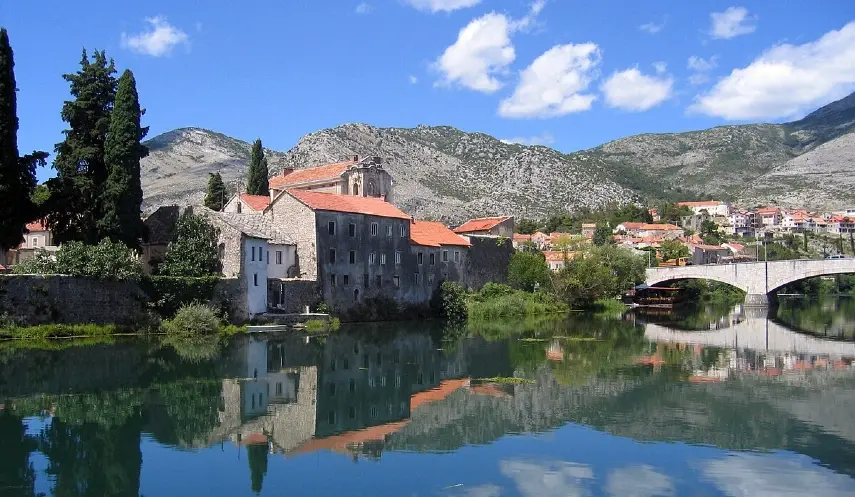NUŽDIĆ: ATLAS OF CRIMES SHOWS THAT SERBS WERE NOT AGGRESSORS
Republika Srpska - SRNA - podcast - announcement
06/20/2025
11:27

BANJA LUKA, JUNE 20 /SRNA/ - The acting director of the Republic Center for Research of War, War Crimes and the Search for Missing Persons Viktor Nuždić told SRNA that the Atlas of Crimes against Serbs in the Defense-Patriotic War is a capital work by the Center, which has documented and confirmed that Serbs were not the aggressors in BiH; it prevented manipulation with the number of victims, and showed the true character of the war in which crimes were massively committed against Serbs.
"The very creation of the Atlas is tied to our intention to identify certain patterns that occurred during the war. The number of massacre sites in 1992 shows a pattern; it debunks the myth that the Serbs were prepared for war, that they were aggressors, and all other labels coming from the other side. If Serbs had truly been prepared for war, those 76 massacre sites in 1992 wouldn’t have happened," Nuždić said in the SRNA podcast.
He emphasized that the rehumanization of victims is the aim of all the Center's publications, so that people are spoken of, not just numbers.
"Numbers are inevitable and should be mentioned, but we must never forget that the primary goal is to rehumanize the victims. We have proven that every victim existed and had a name and a surname. We prevented the manipulation of victim numbers, which is something that has been persistently attempted," Nuždić said.
He noted that The Atlas of Crimes against Serbs also demonstrated that the Republika Srpska Army established clear lines of demarcation and saved the Serb people from a repeat of the genocide committed against them between 1941 and 1945.
"As early as 1993, after the formation of the Republika Srpska Army, the number of crimes began to stagnate. Most of the crimes occurred in the first half of 1993, such as the major crimes in Kravica and Skelani. In 1994, the number of crimes also stagnated; we identified seven cases, which were related to sabotage operations and raids on undefended Serb villages," Nuždić said.
He emphasized that this also confirms the character of the war, adding that he can already say that the 1995 volume of the Atlas will be just as extensive as the one for 1992.
"That is because Republika Srpska and its Army were at that time exposed to attacks by the so-called Army of BiH, the Croatian Defense Council, the Croatian Army, which openly continued the aggression it launched against Srpska in 1992, and even NATO, which bombed Srpska and provided logistical support, especially to the Croatian Army," Nuždić said.
He emphasized that the Atlas also led to the conclusion that crimes against Serbs were frequently committed during major Orthodox religious holidays.
A new episode of SRNA's podcast, featuring the acting director of the Republic Center for Research of War, War Crimes and the Search for Missing Persons, Viktor Nuždić, will be available to our service users on YouTube and social media tomorrow at 10:00 a.m.
Tags

HAPPY NEW YEAR!

LAST DAY OF THE YEAR MARKED BY LIFE-SAVING OPERATIONS: AIR TRANSPORT OF A PATIENT FROM NEVESINJE TO BANJALUKA

CITY FULL OF VISITORS - ACCOMMODATION CAPACITY ALMOST 100% OCCUPIED



